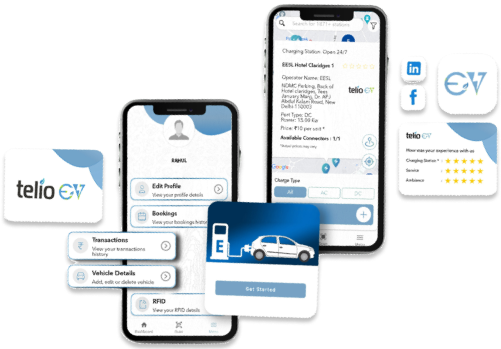The Blog on EV Cms Software
The Blog on EV Cms Software
Blog Article
Enhancing Electric Vehicle Charging with Advanced Management Software

The rapid adoption of electric vehicles (EVs) has required the development of efficient and user-friendly charging solutions. Central to this evolution are Electric Vehicle Charging Management Software (EV CMS) and EV Charging Apps, which streamline the charging procedure for both operators and users.
Comprehending EV Charging Management Software
EV Charging Management Software works as a detailed platform that allows Charge Point Operators (CPOs) and other stakeholders to monitor, manage, and optimize EV charging stations. Key functionalities include real-time tracking of charging stations, user authentication, payment processing, and energy management. By incorporating these features, the software ensures effective operation and improves the user experience.
Key Features of EV Charging Management Software
1. Real-Time Monitoring and Control: Operators can supervise the status of charging stations, track energy consumption, and address concerns immediately.
2. User Authentication and Access Control: The software manages user access, ensuring that just authorized individuals can use the charging facilities.
3. Payment Processing: It assists in seamless transactions, supporting numerous payment techniques to cater to varied user preferences.
4. Energy Management: By optimizing energy circulation, the software minimizes operational expenses and supports grid stability.
5. Reporting and Analytics: Comprehensive data analysis help in informed decision-making and strategic preparation for network expansion.
The Role of EV Charging Apps
EV Charging Apps are created to provide EV owners with hassle-free access to charging infrastructure. These applications offer functions such as locating neighboring charging stations, real-time availability updates, navigation help, and remote monitoring of charging sessions. By boosting ease of access and user engagement, these apps play a vital role in promoting the adoption of electric vehicles.
Combination with Open Charge Point Interface (OCPI)
The Open Charge Point Interface (OCPI) is a standardized protocol that facilitates interoperability in between different EV charging networks. Combination with OCPI enables smooth roaming, allowing users to gain access to multiple charging networks with a single account. This interoperability boosts user convenience and broadens the accessibility of charging facilities.
Advantages of Implementing Advanced Charging Solutions
- Enhanced User Experience: User-friendly interfaces and trusted services increase client fulfillment and loyalty.
- Operational Efficiency: Automation and real-time tracking lower manual intervention, reducing functional costs.
- Scalability: Advanced software solutions support the expansion of charging networks to fulfill growing demand.
- Revenue Generation: Flexible prices models and effective payment processing open new revenue streams for operators.
Conclusion
The integration of EV Charging Management Software and user-centric EV Charging Apps is essential in advancing the electric vehicle community. These innovations not just improve operations for service providers however likewise significantly improve the charging experience for users. As the EV market continues to grow, Best EV Charging App the adoption of such innovative solutions will contribute in meeting the increasing demand for effective and available charging infrastructure. Report this page